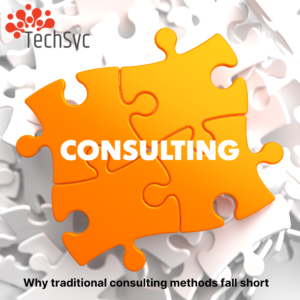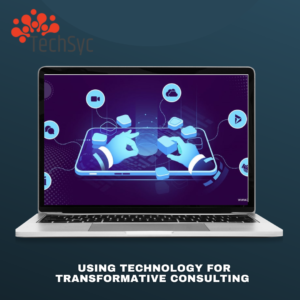” Unlocking Potential: Innovative Strategies For Transformative Consulting
Consulting is an ever- evolving field and staying ahead of the game requires constant invention. In this blog post, we’ll explore the rearmost strategies for transubstantiation of traditional consulting models to unlock untapped eventuality.
We will bandy how to use creative approaches to develop comprehensive results that go beyond the status quo. By probing into these ways, you will gain perceptivity into how to maximise your consultancy’s success. Join us as we explore the world of transformative consulting!
1.Why traditional consulting methods fall short 
Traditional consulting styles have long been the backbone of the assiduity, but they’re falling short in moment’s fleetly changing business geography. The world is further connected than ever ahead, and guests anticipate further than just face- position results.
They want advisers who can offer fresh perspectives, innovative strategies, and transformative results. One of the crucial reasons why traditional consulting styles fall suddenly is their focus on problem- working rather than problem forestallment.
Advisers are frequently called in after an issue has formerly arisen, and their job is to find a result to fix it. While this approach can be effective in the short term, it fails to address the underlying causes of the problem and help analogous issues from being in the future. This reactive approach limits the eventuality for long- term growth and sustainability. Another limitation of traditional consulting styles is their reliance on one- size- fits- all results.
Advisers frequently bring a destined set of tools and fabrics to every engagement, without taking the time to truly understand the unique challenges and openings of each customer. This cookie- knife approach overlooks the individuality of businesses and inhibits the development of acclimatised, innovative results that can truly transfigure associations. Also, traditional consulting styles tend to prioritise top-down decision- timber, with advisers decreeing strategies and results to guests. While this hierarchical approach may have been effective in history, it fails to work to the full eventuality of the association and its workers.
2.The significance of unlocking potential
In the ever- evolving world of consulting, it’s pivotal to fete the significance of unlocking eventuality. Traditional consulting styles may fall suddenly in their capability to drive true transformative change, but by tapping into the untapped eventuality of associations, advisers can produce lasting impact.
Unlocking eventuality is about going beyond the face- position results and truly understanding the unique challenges and openings of each customer. It requires taking a deep dive into the association, its people, processes, and culture to identify areas where untapped eventuality falsehoods.
This means breaking free from the one- size- fits- all approach and developing acclimatised strategies that align with the specific requirements of the association. By unlocking implicit, advisers can help associations achieve sustainable growth and avoid expensive lapses. They can identify implicit issues before they come to major problems and help apply precautionary measures.
This visionary approach is essential in the moment’s fast- paced business terrain, where dexterity and rigidity are crucial. Also, unlocking implicit empowers associations to tap into their own coffers and unleash the creativity and innovative thinking of their workers. It shifts the focus from top-down decision- making to a cooperative approach, where stakeholders at all situations are involved in shaping strategies and results.
This inclusive approach not only leverages the different perspectives and moxie within the association but also fosters a sense of power and commitment to the metamorphosis process. In addition to driving organisational growth and invention, unlocking eventuality also leads to enhanced customer satisfaction. By going beyond the status quo and immolation of fresh perspectives and innovative results, advisers can deliver palpable results that exceed customer prospects.
3.Innovative approaches to consulting 
In the moment’s fleetly changing business geography, advisers need to borrow innovative approaches to stay ahead of the game. Traditional consulting styles may have served their purpose in history, but they frequently fall suddenly in delivering transformative change.
Design thinking is a mortal- centred approach that emphasises empathy, trial, and replication. By putting yourself in the shoes of your guests and truly understanding their requirements, you can develop customised results that address their unique challenges. Design thinking encourages a cooperative approach, where advisers work nearly with guests and stakeholders toco-create results that truly make an impact. Another innovative approach is nimble consulting.
Traditional consulting styles frequently calculate on rigid, direct processes that are ill- suited to the fast- paced, ever- evolving nature of the moment’s business terrain. nimble consulting, on the other hand, embraces inflexibility and rigidity. It involves breaking down systems into lower, more manageable tasks and continuously repeating and perfecting grounded on feedback and new information. This iterative approach allows advisers to snappily respond to changing request conditions and deliver palpable results in shorter time frames. Technology also plays a pivotal part in innovative consulting approaches.
From artificial intelligence and machine literacy to data analytics and robotization, technology can revise the way advisers deliver value to their guests. For illustration, AI- powered tools can dissect vast quantities of data to uncover patterns and perceptivity that would be delicate for humans to discover. Robotization can streamline repetitive tasks, freeing up advisers to concentrate on further strategic and value- added conditioning. By using technology, advisers can enhance their problem- working capabilities, drive effectiveness, and unleash new possibilities for transformative change.
4.Using technology for transformative consulting 
In the moment’s fleetly changing business geography, using technology is essential for transformative consulting. Technology has the power to revise the way advisers deliver value to their guests, enhance problem- working capabilities, and unleash new possibilities for transformative change.
One way technology can be abused is through artificial intelligence( AI) and machine literacy. AI- powered tools can dissect vast quantities of data to uncover patterns and perceptivity that would be delicate for humans to discover.
This data- driven approach allows advisers to make informed opinions and develop strategies that are grounded on real- time information. Machine literacy algorithms can also continuously learn and acclimatise, allowing advisers to ameliorate their recommendations over time. Robotization is another technology that can greatly profit advisers . By automating repetitive and homemade tasks, advisers can free up precious time to concentrate on further strategic and value- added conditioning.
Robotization can streamline processes, increase effectiveness, and ameliorate overall productivity. This enables advisers to deliver high- quality work in shorter timeframes and allows them to take on further systems. Data analytics is also pivotal for transformative consulting. With the capability to collect and dissect large quantities of data, advisers can gain precious perceptivity into their guests’ businesses. Data analytics can uncover trends, identify implicit areas for enhancement, and help advisers make data- driven recommendations.
5.Case studies of successful transformative consulting 
In the world of consulting, success stories are like gold. They not only give alleviation and provocation but also serve as concrete exemplifications of how transformative consulting can drive real change. In this section, we will dive into some case studies of successful transformative consulting to show the power of innovative strategies.
Case Study 1 Company X
Company X, a global manufacturing company, was floundering with stagnant growth and increased competition. They turned to a transformative consulting establishment for help. The advisers took a deep dive into the company’s operations and linked crucial areas for enhancement. They enforced a comprehensive digital metamorphosis strategy that included process robotization, data analytics, and AI- powered results. This enabled Company X to streamline operations, reduce costs, and enhance productivity. The result? Company X endured a significant increase in profitability and request share, situating them as assiduity leaders.
Case Study 2 Organization Y
Organization Y, a nonprofit concentrated on education, wanted to expand their reach and impact. They partnered with a transformative consulting platoon to develop a growth strategy. The advisers conducted extensive exploration and analysis, relating untapped openings in new requests. They helped Organization Y develop innovative programs, using technology to reach a wider followership. The transformative consulting platoon also enforced a data- driven approach, using analytics to measure program effectiveness and make data- driven adaptations. As a result, Organization Y achieved exponential growth, reaching further scholars and making a continuing impact on their communities.
Case Study 3 Start- up Z
Start- up Z, a tech company with an innovative product, demanded help navigating the competitive geography and spanning their operations. They enlisted the support of a transformative consulting establishment with moxie in the tech assistance. The advisers worked nearly with launch- up Z’s leadership platoon, helping them upgrade their business model, streamline processes, and develop a strategic growth plan. The transformative consulting platoon also handed guidance on securing backing and expanding their request presence. Start- up Z endured rapid-fire growth, attracting significant investment and establishing themselves as a crucial player in the assiduity.
These case studies punctuate the power of transformative consulting in driving positive change. They demonstrate the significance of taking an acclimatised approach, using innovative strategies, and embracing technology. Each association was suitable to unleash their untapped eventuality and achieve remarkable results.
These success stories serve as alleviation for advisers looking to make a meaningful impact and drive transformative change for their guests. In the ever- evolving world of consulting, learning from successful case studies is pivotal. By studying the strategies, methodologies, and issues of these transformative consulting systems, advisers can gain precious perceptivity and apply them to their own work.
Conclusion:
Consulting is an ever- evolving field that requires constant invention to stay ahead. In this blog post, we’ve explored the rearmost strategies for transubstantiation of traditional consulting models to unlock untapped eventuality.
We’ve bandied about the limitations of traditional consulting styles and why they fall suddenly in the moment’s fleetly changing business geography. We’ve emphasised the significance of unlocking implicit and how it can drive true transformative change.
Also Read : 150+ RSS Feed Submission Sites List
Also Read : 5 uses of penetration testing uses

